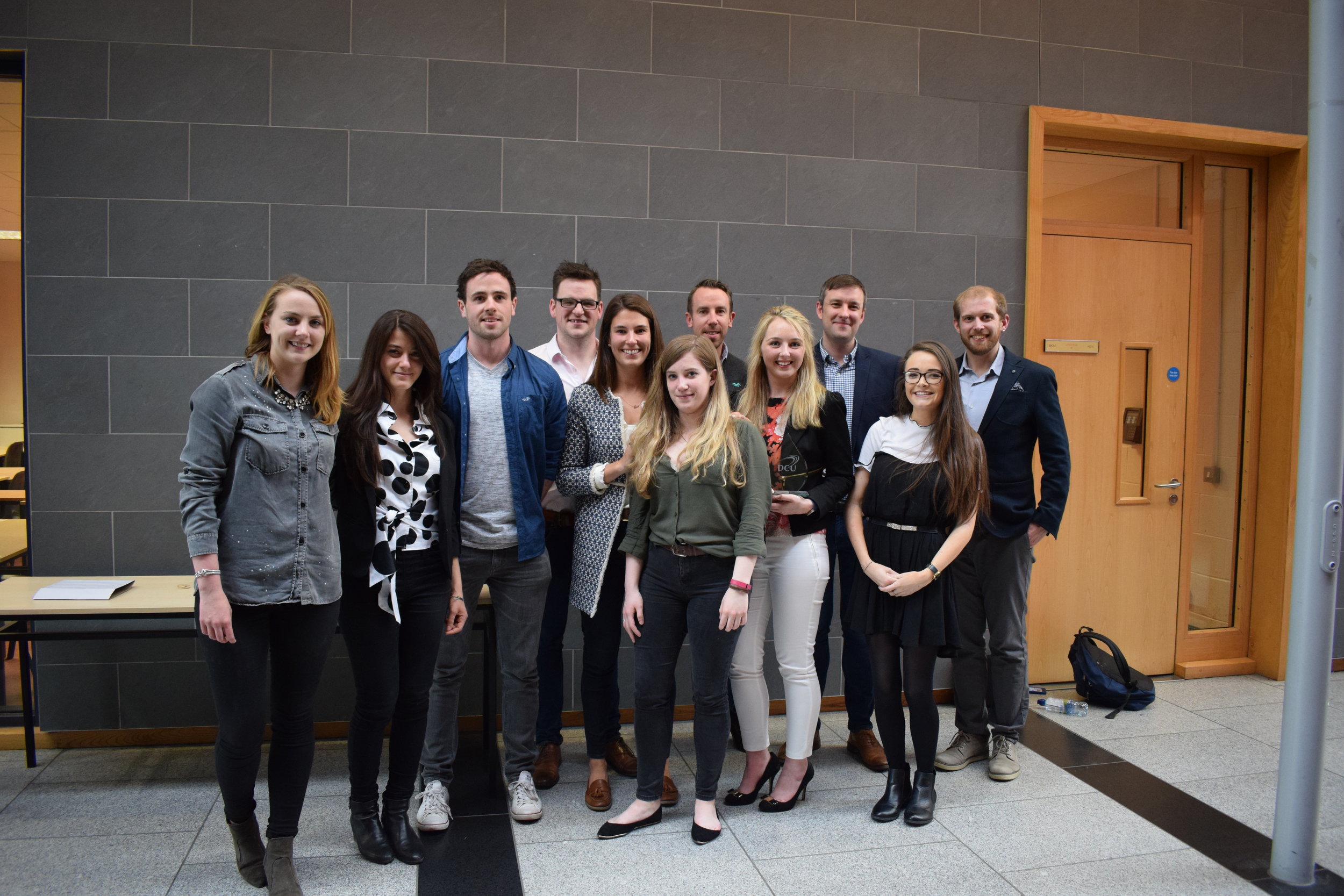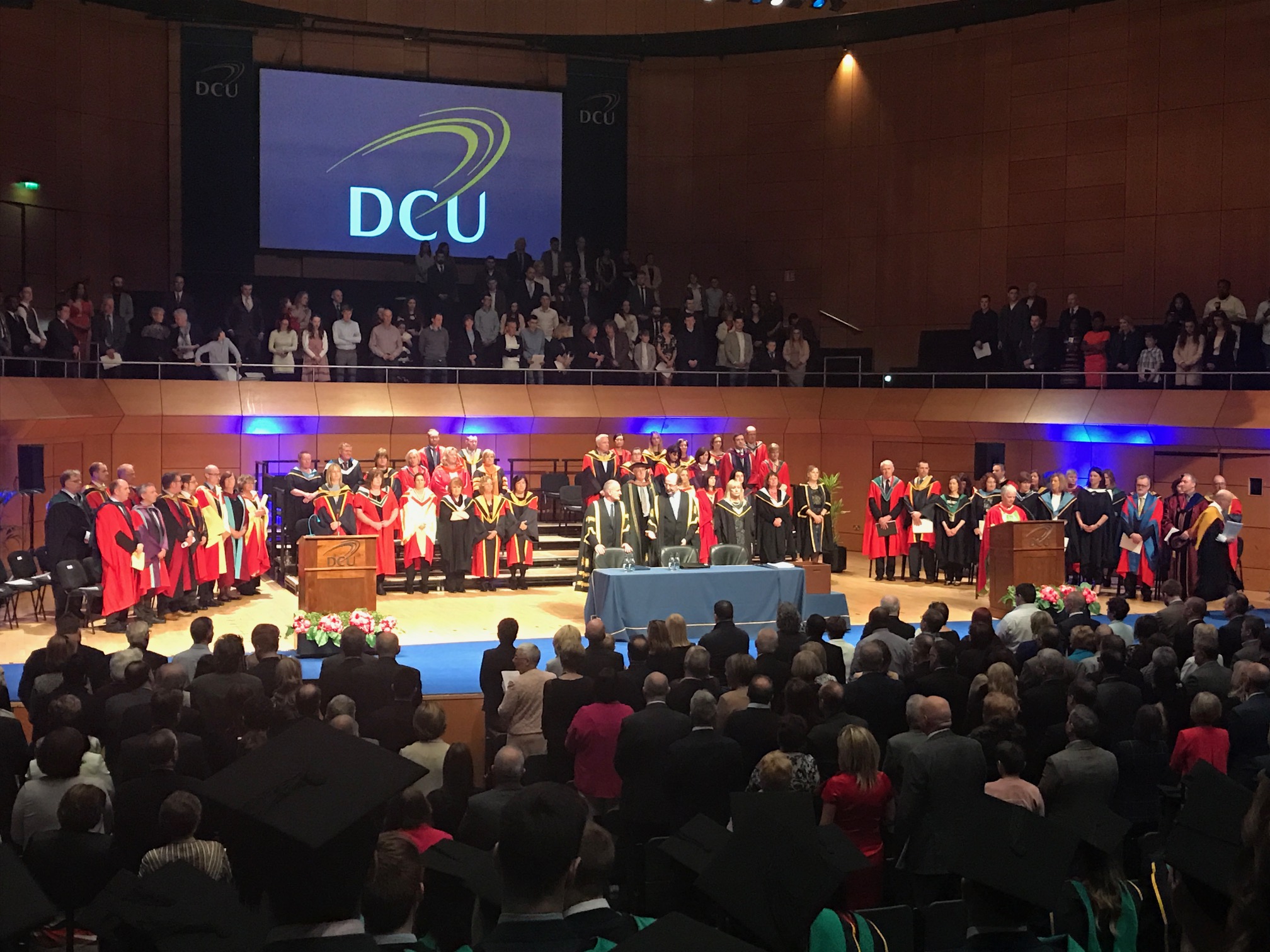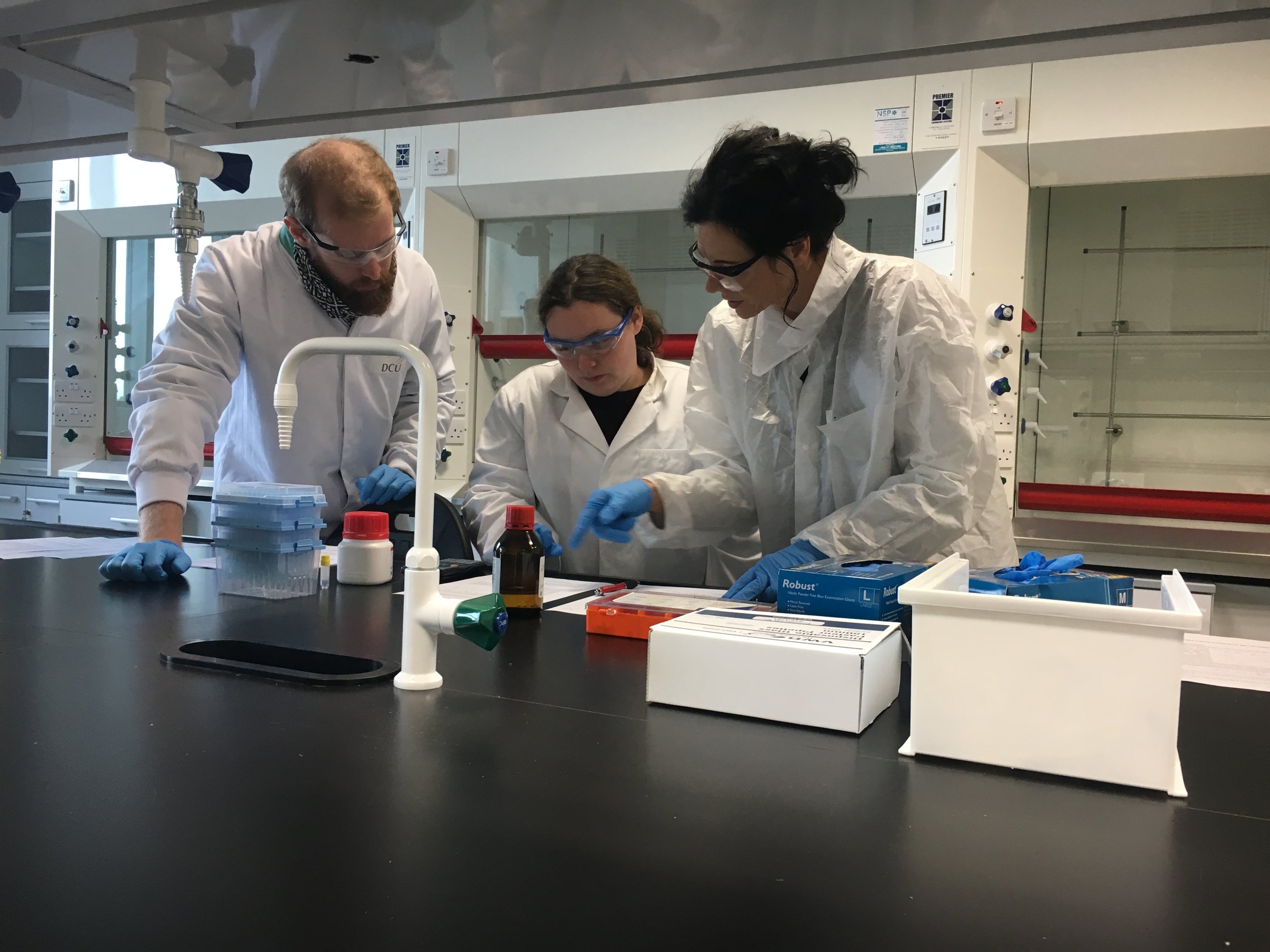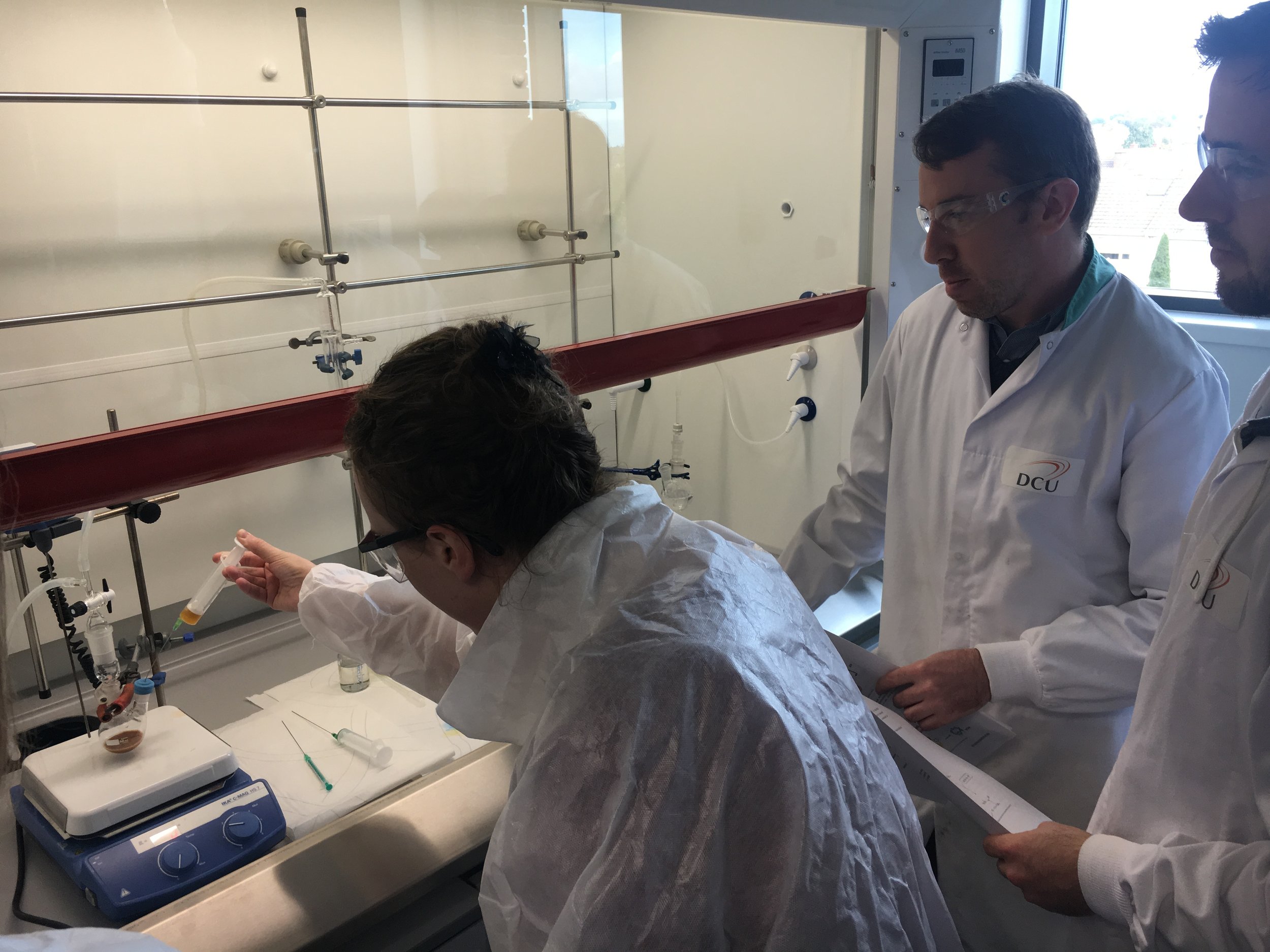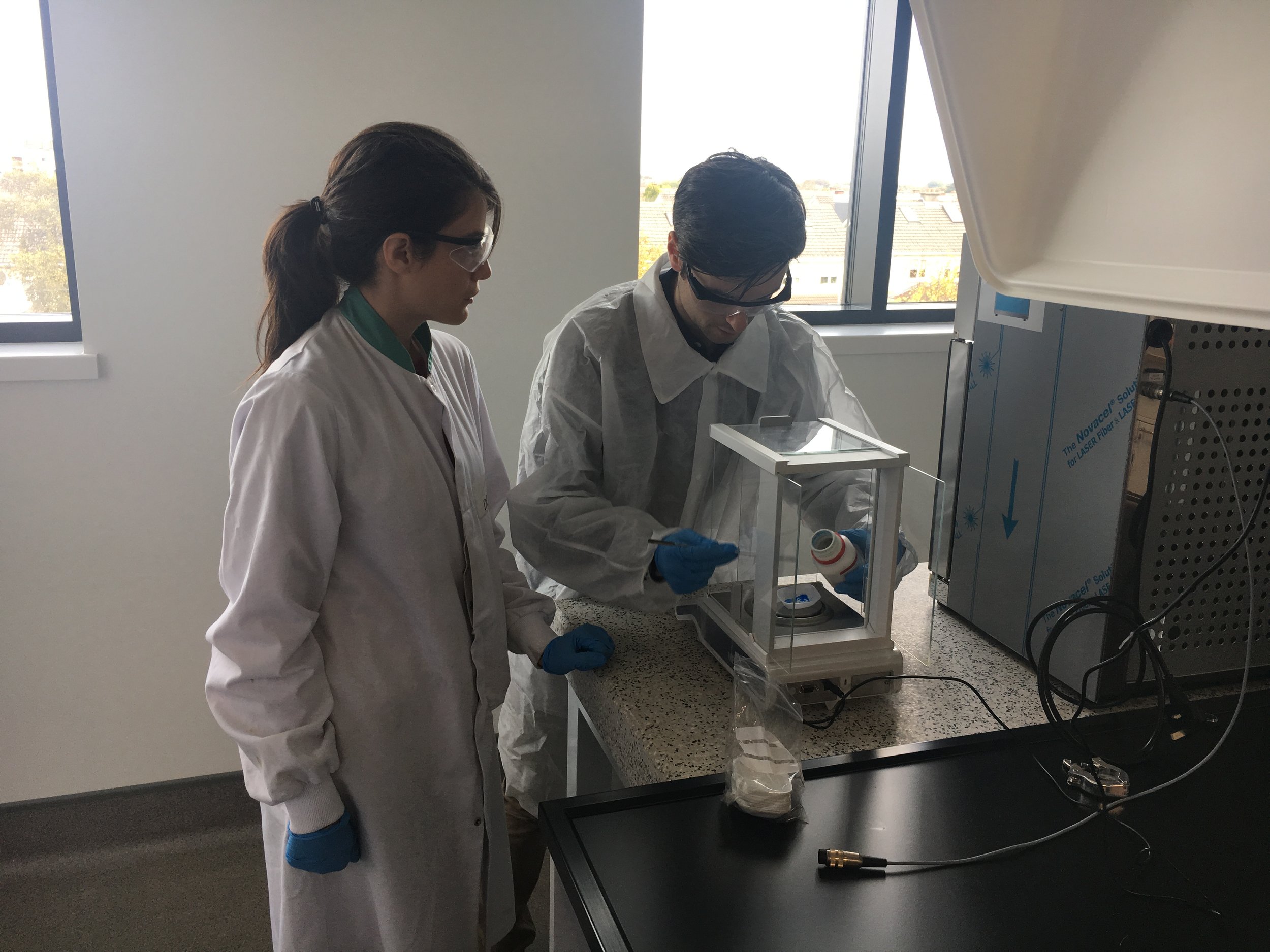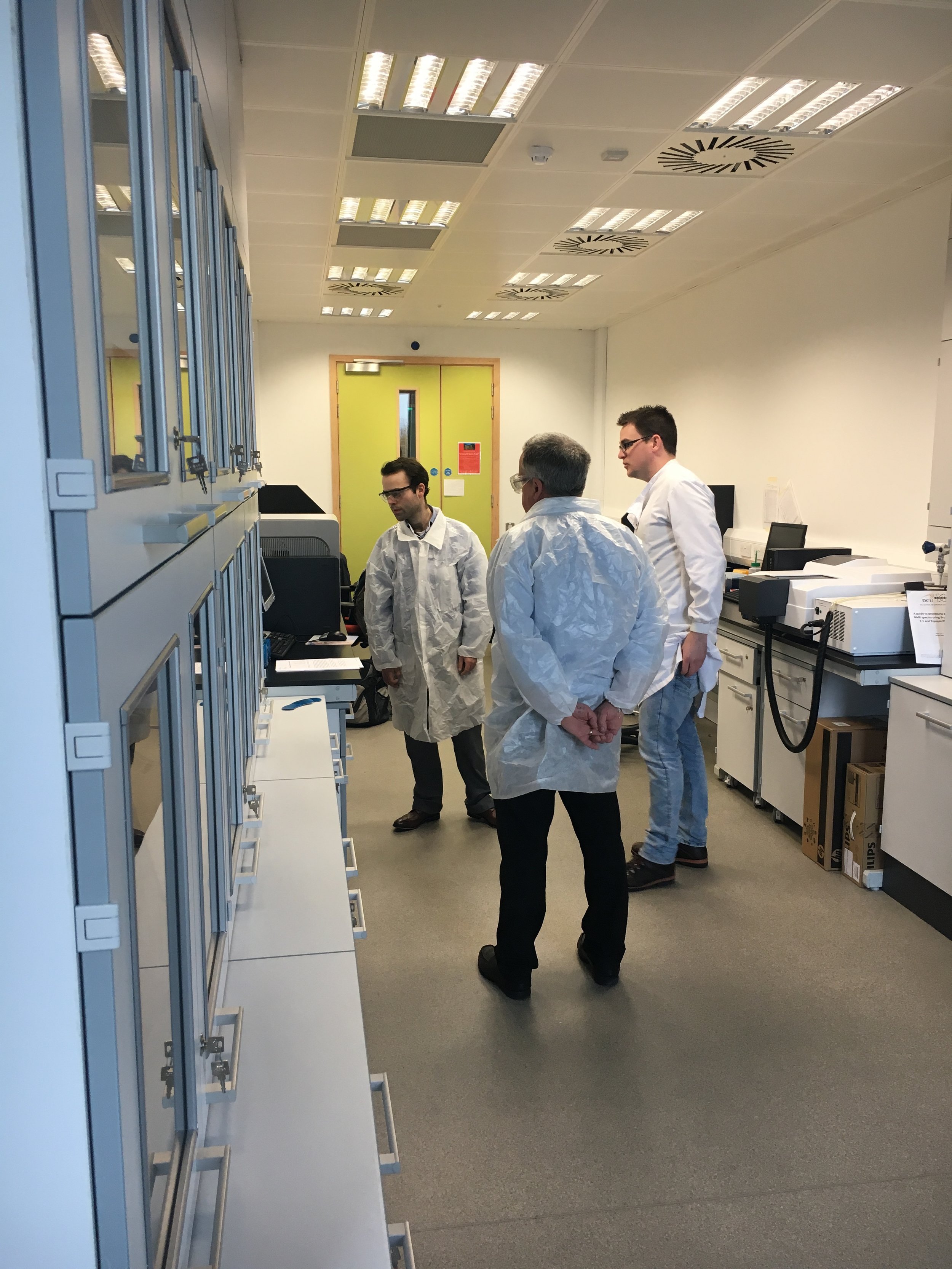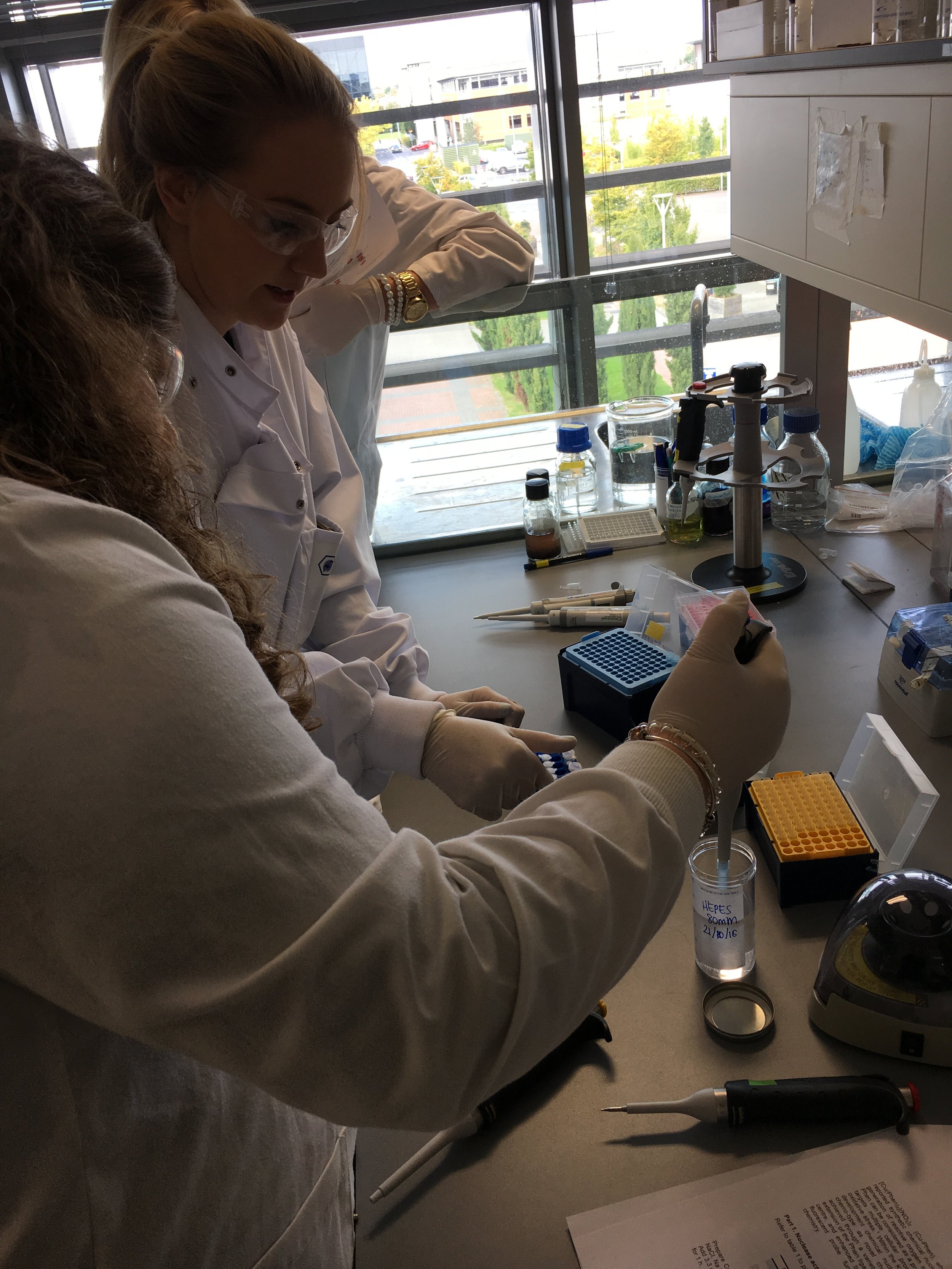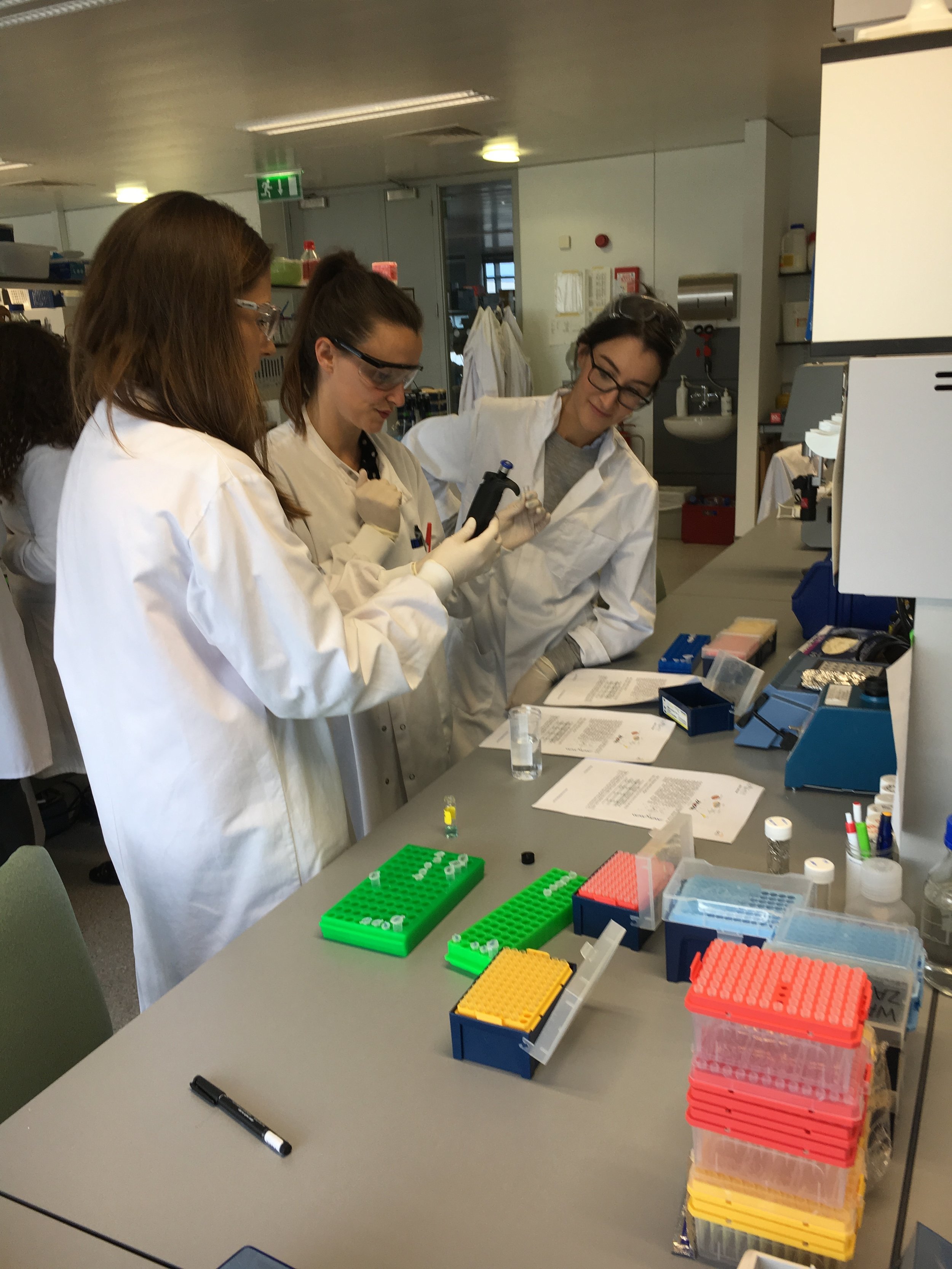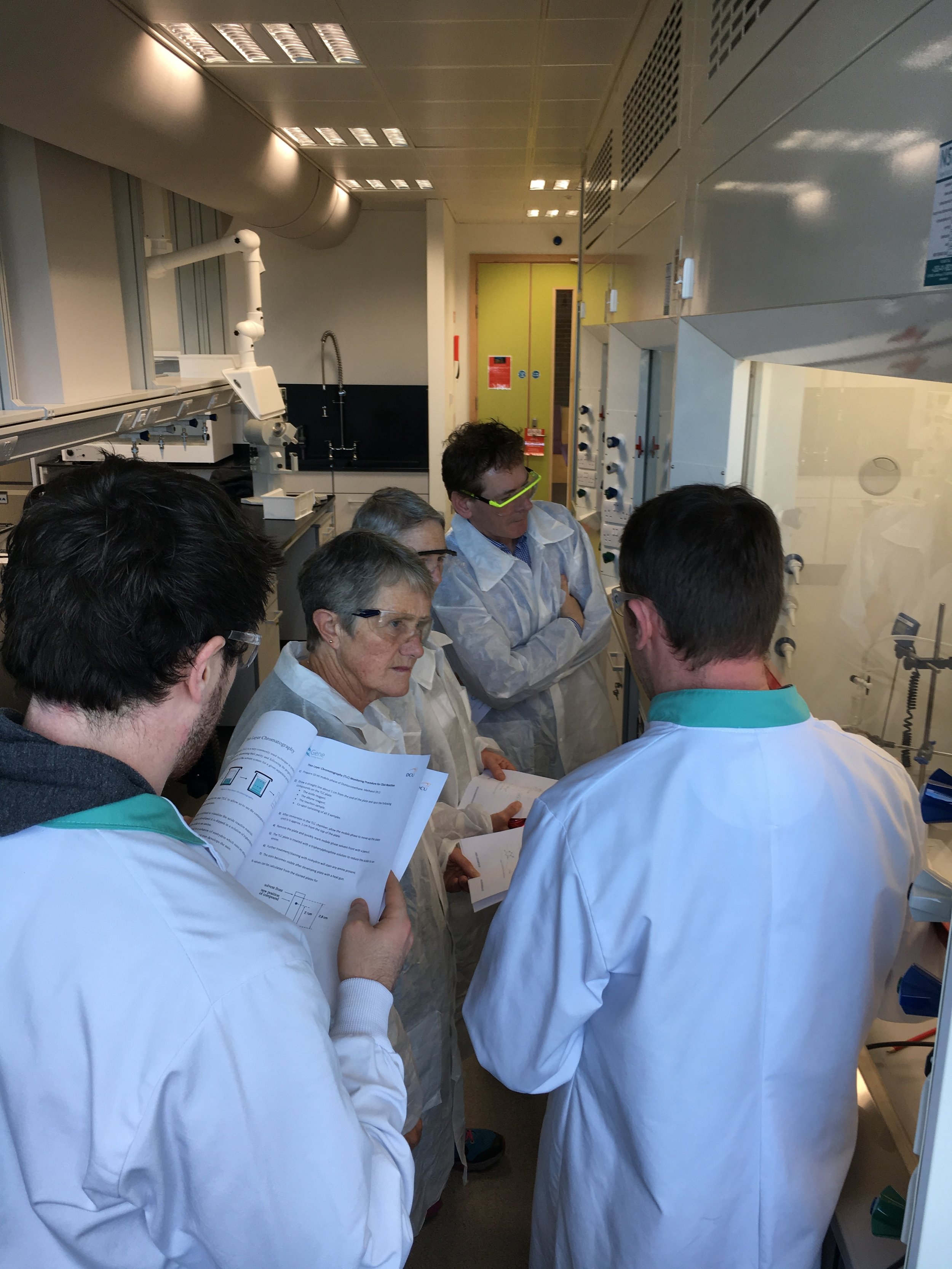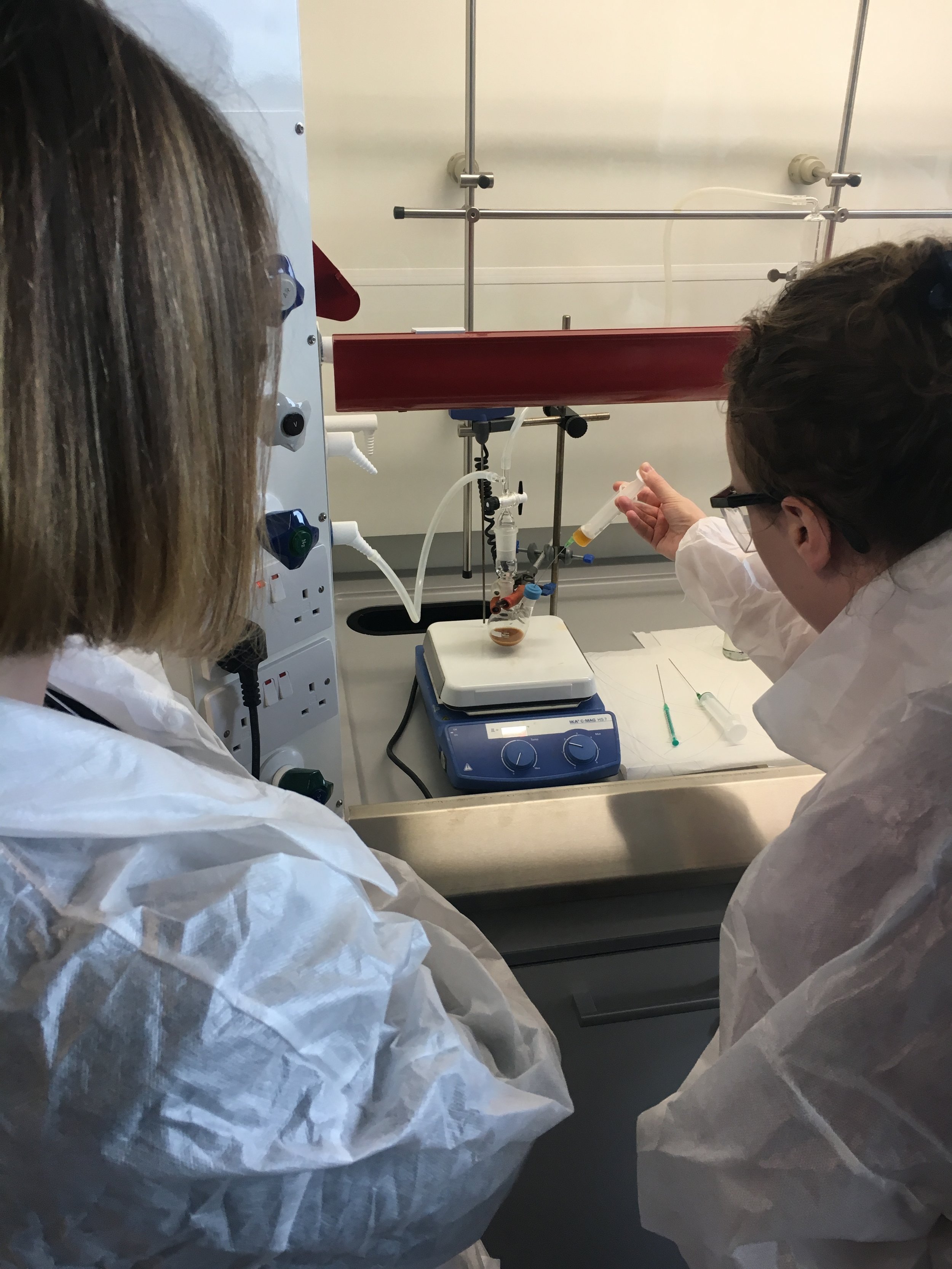We have recently published an article entitled “C3-Symmetric Opioid Scaffolds are pH-Responsive DNA Condensation Agents” in the Oxford journal, Nucleic Acid Research. In this article, we report the synthesis of novel tripodal C3-symmetric opioid scaffolds as high-affinity condensation agents of duplex DNA. Through our collaboration with Prof. Nicholas Gathergood (Tallinn University of Technology, Estonia), we achieved the synthesis of these novel opioid structures and evaluated the synthesis through green chemistry metrics, highlighting key synthetic aspects for future work. The opioid scaffolds were identified through agarose electrophoresis, viscosity, and turbidity as effective condensation agents of both supercoiled and canonical B-DNA structures. In collaboration with Prof. Attilio Cafolla (School of Physical Sciences, DCU) we have achieved high-resolution atomic force microscopy (AFM) images of the morphological changes of DNA through the condensation affects of these opioid molecules. In the presence of low (mM) drug loading, supercoiled pUC19 DNA exhibited small cluster formation were tight packed is observed at the cluster centre, as the concentration is gradually increased large tightly packed globules of DNA is formed, supporting earlier gel electrophoresis analysis. The tripodal opioid condensation was identified as pH dependent and through thermal melting and circular dichroism; evidence of cationic-phosphate backbone coordination was identified. Further studies by on-chip microfluidic analysis provided concentration-dependent inhibition to site selective excision by type II restriction enzymes. In summary, this work has revealed the discovery of a new high-affinity DNA binding scaffold capable of mediating condensation ostensibly through electrostatic and H-bonding interactions with the phosphate backbone.
This publication has recently made news headlines on the Dublin City University website.
